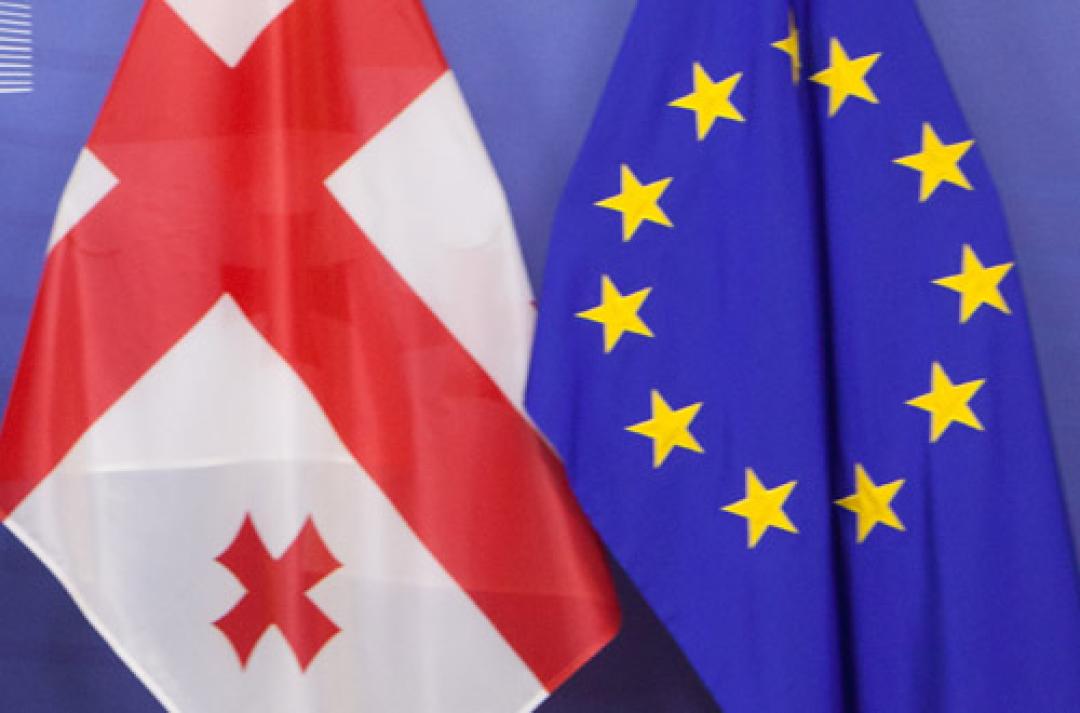
Association Implementation Report on Georgia

On 6 February, the European Commission published their Association implementation report on Georgia, which set out the state of play on Georgia’s implementation of its commitments under the EU-Georgia Association Agreement (AA) since the EU-Georgia Association Council meeting on 5 March 2019.
The report stated that “the EU regards Georgia as a key partner in the region and continues fully to support its sovereignty and territorial integrity within its internationally recognised borders, [and that] Georgia continues to be fully committed to and actively participates in the Eastern Partnership multilateral architecture.”
In terms of the country’s political landscape, the report outlined the major political activity took place in 2019. This included by-elections for one parliamentary seat and five mayoral posts, mass public protests since the summer and a busy parliamentary session in the autumn to adopt key legislation relating to democratic consolidation. The media landscape changed considerably after a European Court of Human Rights (ECHR) ruling on the Rustavi 2 TV channel case in July (Caucasus Watch reported). New media channels were set up and the Prosecutor’s Office launched investigations into cases involving the owners/managers of some media outlets. Civil society remained very active in holding public institutions accountable and monitoring the implementation of the AA, including the Deep and Comprehensive Free Trade Agreement (DCFTA). Tensions persisted between certain civil society organisations (CSOs) and state institutions. The use of force against demonstrators in June 2019 was also under investigation.
In relation to Georgia’s visa-free regime with the EU, the report stated that almost 900.000 visits have been made by Georgian citizens since its entry into force. However, the number of asylum requests made by Georgians in EU/Schengen countries remained high in 2019, exceeding the overall number of asylum requests in 2018 and 2017, ranking Georgian nationals amongst the top nationalities requesting international protection in the EU, but Georgia has continued to pro-actively address the challenge of increased unfounded asylum applications.
The macroeconomic outlook of the country remained stable, with some downward risks. The economy continued to grow (by more than 4.5% year-on-year in the first ten months of 2019) but it remained vulnerable to domestic political risks and spill-over effects from external developments, including growing global trade tensions, the economic performance of key trade partners (such as Turkey) and financial market volatility. Georgia is doing well in international business environment rankings. However, challenges remain with regard to the independence and accountability of the judiciary, legal certainty and ongoing investigations involving major businesses (including TBC Bank). In January, the European Commission published an indicative trans-European transport network (TEN-T) investment action plan, which identified 18 priority projects for Georgia for a total value of EUR 3.4 billion.
In the department of people to people contacts, the Georgian government announced a new education programme, with a declared increase of state funding to 6% of GDP by 2022, launched a large-scale campaign (Georgia, Europe), aimed at raising awareness of the EU in Georgia and vice versa and became a member of the EURAXESS research network (Caucasus Watch reported). In general, there have been continued bilateral consultations with EU Member States on cooperation in the framework of the mobility partnerships.
As for the recommendations and outlooks for Georgia in 2020, the report stated that the parliamentary elections foreseen for autumn 2020 will be pivotal in confirming Georgia’s democratic credentials. Responding to all OSCE/ODIHR recommendations made in the aftermath of the 2018 presidential elections should be the objective of the current electoral reform. Another important aspect is the country’s judicial reform, where it is essential that the selection procedure for Supreme Court Judges adheres to all recommendations made by the Venice Commission and be carried out in a transparent manner and in line with a genuinely merit based nomination process. Georgia needs to continue pro-actively addressing the continued increase of asylum applications in close cooperation with the Commission and EU Member States. Also, structural reforms are required to make Georgia’s economy less vulnerable to external developments and to enhance the investment climate and trade potential of the country.
See Also


Simonyan: “Armenia Should Trade with Turkey and Azerbaijan Instead of Closing Borders”

Mirzoyan Meets US Deputy Assistant Secretary Joshua Huck

Azerbaijani President Holds Talks with UAE and German Business Delegations on Economic Cooperation

Grigoryan Confirms Armenia’s Readiness to Dissolve OSCE Minsk Group Upon Peace Treaty Signing

